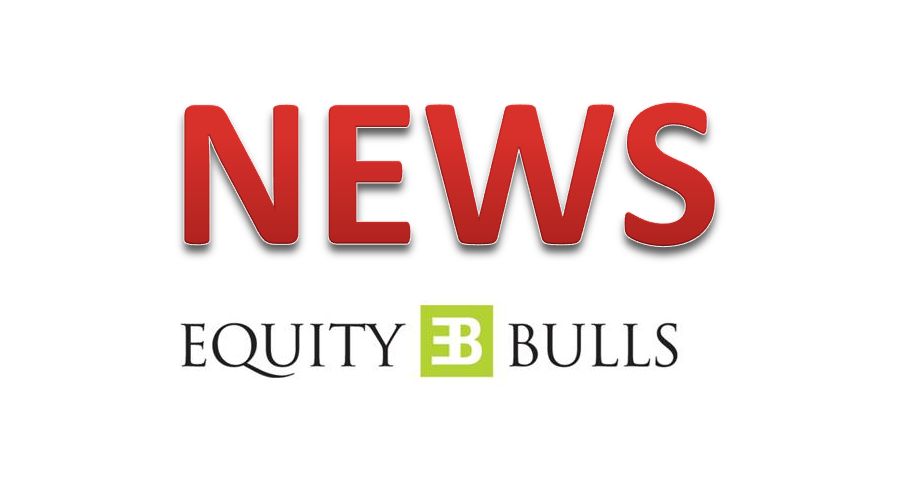 AI Disruption Fears Grip Wall Street, Nifty Snaps Four-Session Winning Streak; IT Index Tumbles More Than 5%
AI Disruption Fears Grip Wall Street, Nifty Snaps Four-Session Winning Streak; IT Index Tumbles More Than 5% Stanley Lifestyles delivers resilient 6.2% gross profit growth in 9MFY26
Stanley Lifestyles delivers resilient 6.2% gross profit growth in 9MFY26 INOX India Ltd announces Q3 & 9M FY26 Results
INOX India Ltd announces Q3 & 9M FY26 Results Bonfiglioli Transmissions Limited files DRHP with SEBI for an IPO
Bonfiglioli Transmissions Limited files DRHP with SEBI for an IPO Calcom Vision reports Highest Ever Quarterly Revenue with 23% YoY growth to Rs 55 crores
Calcom Vision reports Highest Ever Quarterly Revenue with 23% YoY growth to Rs 55 crores
Market Commentary
RBI on hold, along expectations : DBS Research
Posted On : 2015-12-12 00:00:56( TIMEZONE : IST )

The Reserve Bank of India (RBI) policy review yesterday was largely a non event. The benchmark Repo rate was left unchanged at 6.75%, along with steady reserve ratios. Inflation estimate for Jan-Mar16 was maintained at 5.8%YoY, while real GDP is expected to average 7.4% this fiscal year with a mild downside bias. The central bank expects prices to follow the disinflationary path laid out at the previous review, but raised concerns over sticky ex-food ex-fuel inflation and firm service sector price indices. CPI inflation numbers are estimated to inch up until Dec15 before plateauing. Authorities also reiterated the need for timely supply-side efforts to mitigate risks of weak winter harvests.
Despite these considerations, the RBI sees inflationary risks as skewed to the downside. In terms of policy guidance, Governor Raghuram Rajan reaffirmed that the policy stance was still accommodative. We interpret this to mean that even if the rates are held steady on price risks, an effective transmission process will translate into lower financing costs in the months ahead. Scope for further rate cuts is contingent on: a) commodity prices; b) inflationary expectations; c) impact of the seventh pay commission proposals; d) transmission of the policy rate changes and e) external developments.
We are cautious on the price outlook, with CPI inflation expected to settle closer to the 6% mark in 1Q 2016, 20-30bps above the central bank's path. Besides weak commodity prices, inflationary risks from other pre-conditions (highlighted above) will be notable. Firstly, impact of the seventh pay commission's proposals is under watch. Its pass-through could be two-fold, firstly through the housing sub-component which has les ~10% weightage in the inflation index. The RBI expects the one-time adjustment to keep the component elevated for6-8 months. The second-order impact is through higher aggregate demand and rebound in inflationary expectations, which might revive worries over generalized price pressures.
Further, the RBI expects the FY17 fiscal targets to be met despite these wage increases. This will be an uphill task. To accommodate fresh spending needs, the government will need restrain spending elsewhere, raise fresh revenues or renege on targets. If the targets are adhered to, allotments towards capital expenditure are likely to fall even if it is insufficient on its own to make room for additional commitments. Hence, a review of the other expenditure segments and rationalization of subsides will be important. Next, the RBI reiterated its concern over the slow pace of transmission on to the banks' base rates.
To expedite the process, the central bank will finalize a methodology to calculate the marginal costs of funding this week. Banks have passed on roughly half of the 125bp cuts in the Repo rate. However any cuts in lending rates will require deposit rates to be adjusted down. This in turn needs the government to lower returns on post office deposits and other small saving schemes, which compete with banks' deposits. We expect some developments on this front at or before the Feb16 budget. Finally, external cross-currents by way of the European Central Bank considering additional QE on one hand and US rate lift-off on the other, requires policy makers to maintain a cautious stance.
Next year's Budget is also another event risk to gauge the qualitative aspects of the fiscal consolidation. Combination of these factors suggests that the RBI is likely to extend its on-hold stance to the early-Feb 2016rate meet. Into FY17,another window to lower rates might reemerge when base effects suppress readings around mid-year. But scale and scope of easing will be contingent on monsoon progress, aggregate demand conditions and inflationary expectations. We see limited room to provide further stimulus.
